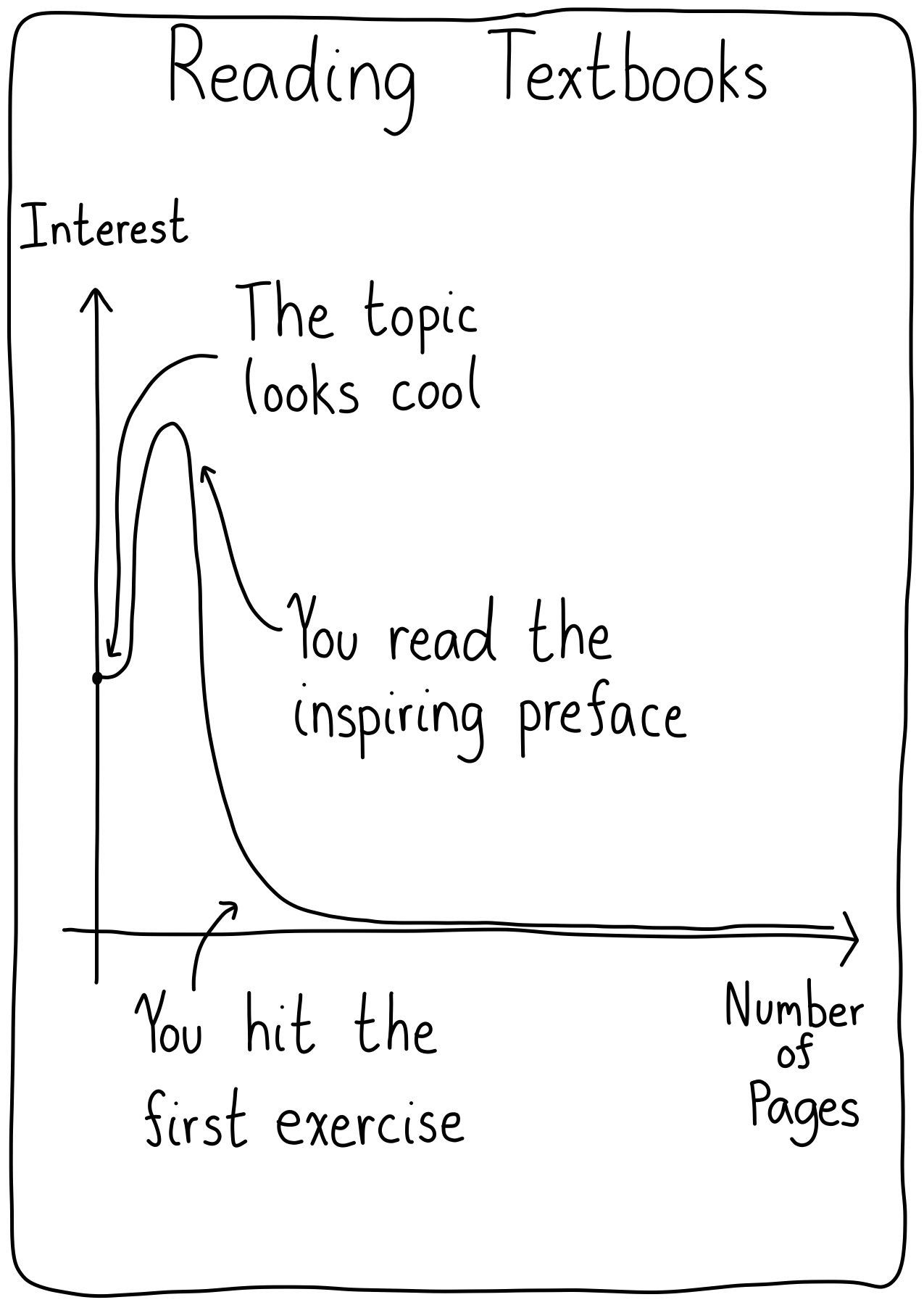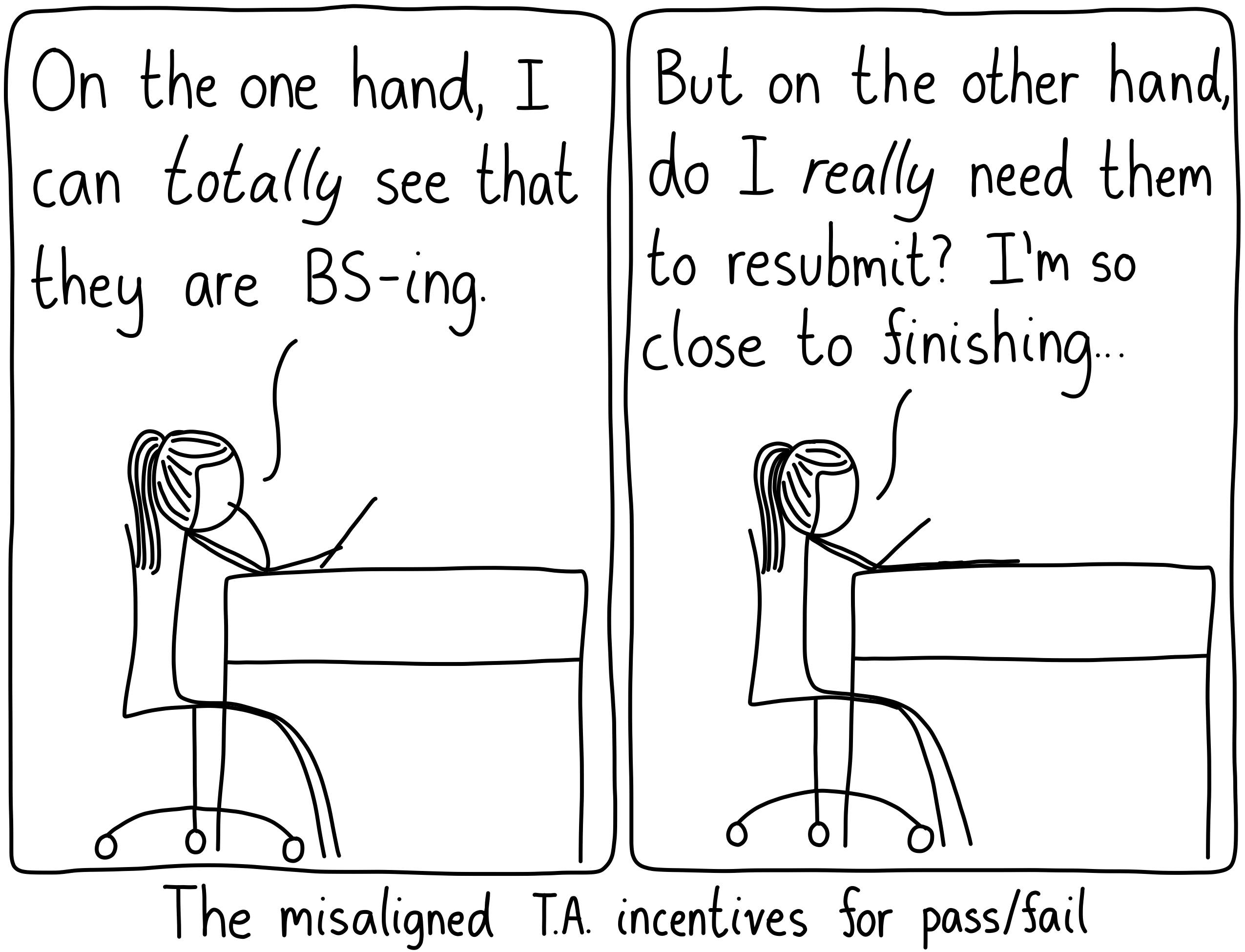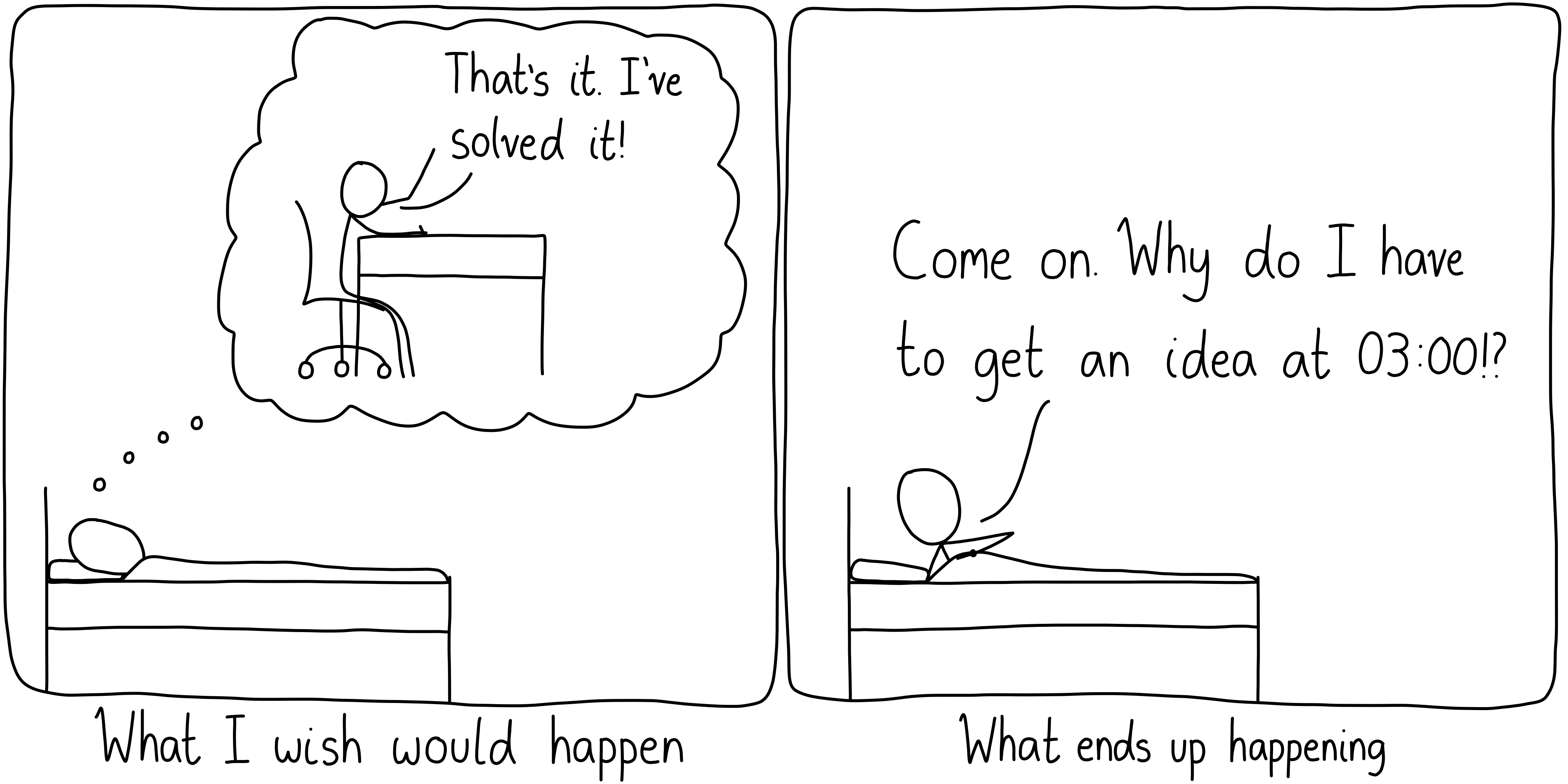 Comics about mathematics, science, and the student life.
Comics about mathematics, science, and the student life.
Reading Textbooks

I have this bad habit of collecting a bunch of textbooks and only ever reading the preface.
It just makes you feel as if you’re about to upgrade your whole brain without any work!
09 Apr 2021Tree Line

This can make for very frustrating conversations where neither of you can understand the other.
07 Apr 2021Phase Transition

Those who achieve a ratio of one get to call themselves mathematical physicists.
05 Apr 2021The Trivial Line

It’s no secret that I dislike the word “trivial”, but I think it has a good place here.
24 Mar 2021Pass/Fail

I’ve been on both sides of this issue, and I have to say: You can really tell when students are doing the minimum.
22 Mar 2021



